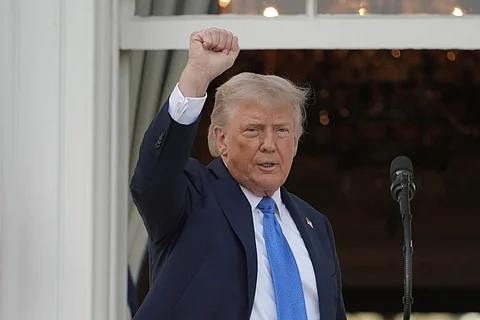

US President Donald Trump has announced a far-reaching new travel ban, barring entry to the United States for nationals of 12 countries and imposing partial restrictions on seven others. The move was formalised in a presidential proclamation issued on Wednesday evening, and is framed as a national security measure.
In the proclamation, Trump explicitly links the new restrictions to the controversial travel ban he introduced in 2017, which triggered mass protests and legal battles across the country. He argues that the new measures are necessary because “vetting immigrants or even tourists” from certain nations remains challenging for US authorities.
“I have determined to fully restrict and limit the entry of nationals of the following 12 countries: Afghanistan, Burma, Chad, Republic of the Congo, Equatorial Guinea, Eritrea, Haiti, Iran, Libya, Somalia, Sudan, and Yemen,” the proclamation reads. “I have determined to partially restrict and limit the entry of nationals of the following 7 countries: Burundi, Cuba, Laos, Sierra Leone, Togo, Turkmenistan, and Venezuela.”
This latest move echoes Trump's 2017 executive order that banned entry to the US from seven predominantly Muslim countries — Iraq, Syria, Iran, Sudan, Libya, Somalia and Yemen. The original order caused widespread chaos at airports, with many travellers barred from boarding flights or detained on arrival. Those affected included students, academics, businesspeople, tourists and family visitors.
Critics dubbed it the “Muslim ban”, and although legal challenges forced several revisions, a modified version was ultimately upheld by the Supreme Court in 2018. That iteration restricted travel from Iran, Libya, Somalia, Syria and Yemen, as well as North Korea and some Venezuelan officials and their families.
Trump has consistently defended the bans as national security measures, insisting they are not rooted in anti-Muslim sentiment. However, during his 2016 presidential campaign, he explicitly called for a "total and complete shutdown of Muslims entering the United States."
The inclusion of Haiti in the full ban is particularly contentious. During his 2024 presidential campaign, Trump amplified a baseless and inflammatory claim by his running mate, JD Vance, alleging that Haitian immigrants in Springfield, Ohio were “eating the pets of the people that live there.”
The proclamation also makes the false claim that “hundreds of thousands of illegal Haitian aliens flooded into the United States during the Biden Administration,” further asserting that this so-called influx “harms American communities.” In reality, approximately 2,00,000 Haitians were granted Temporary Protected Status (TPS), a legal designation that allows individuals to remain in the US due to unsafe conditions in their home country. Many of those labelled “illegal” by Trump and Vance are in fact legal residents.
Equally controversial are the new restrictions on Afghan nationals. Many Afghans currently living in the US were resettled as refugees after working alongside American forces during the 20-year war in Afghanistan. Trump himself negotiated the withdrawal agreement with the Taliban during his presidency, a move that later resulted in a full US exit in 2021.
Last month, Homeland Security Secretary Kristi Noem announced the termination of TPS for Afghanistan, effective May 20. However, she did not clarify how Afghans who had aided the US military could safely return to a Taliban-controlled nation.
The new travel restrictions are expected to reignite legal challenges and public outcry similar to those seen during Trump’s first term.